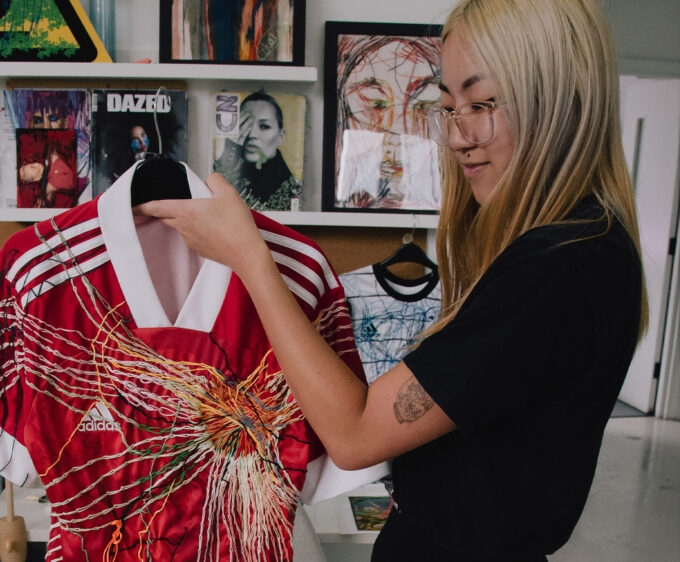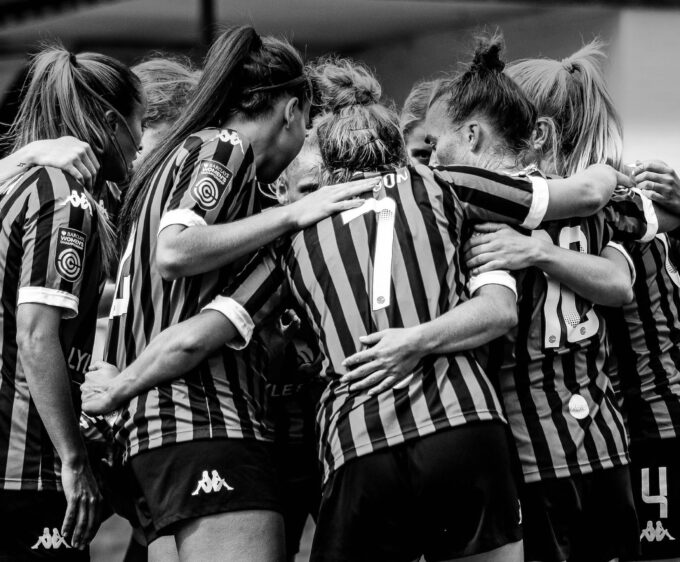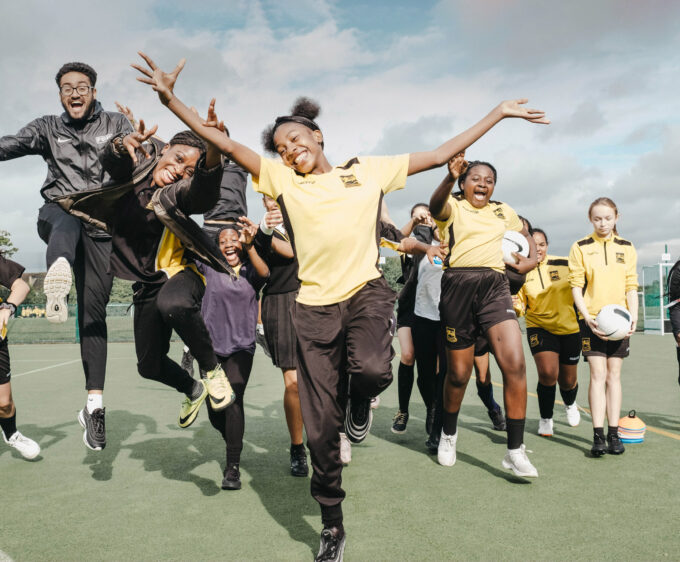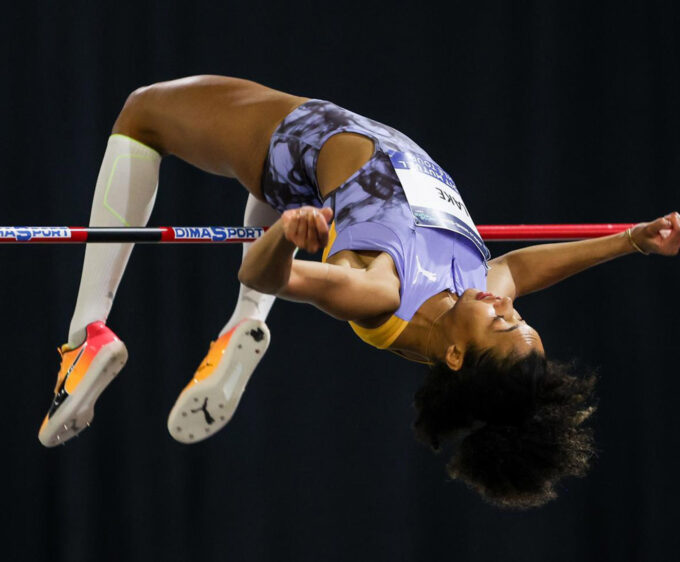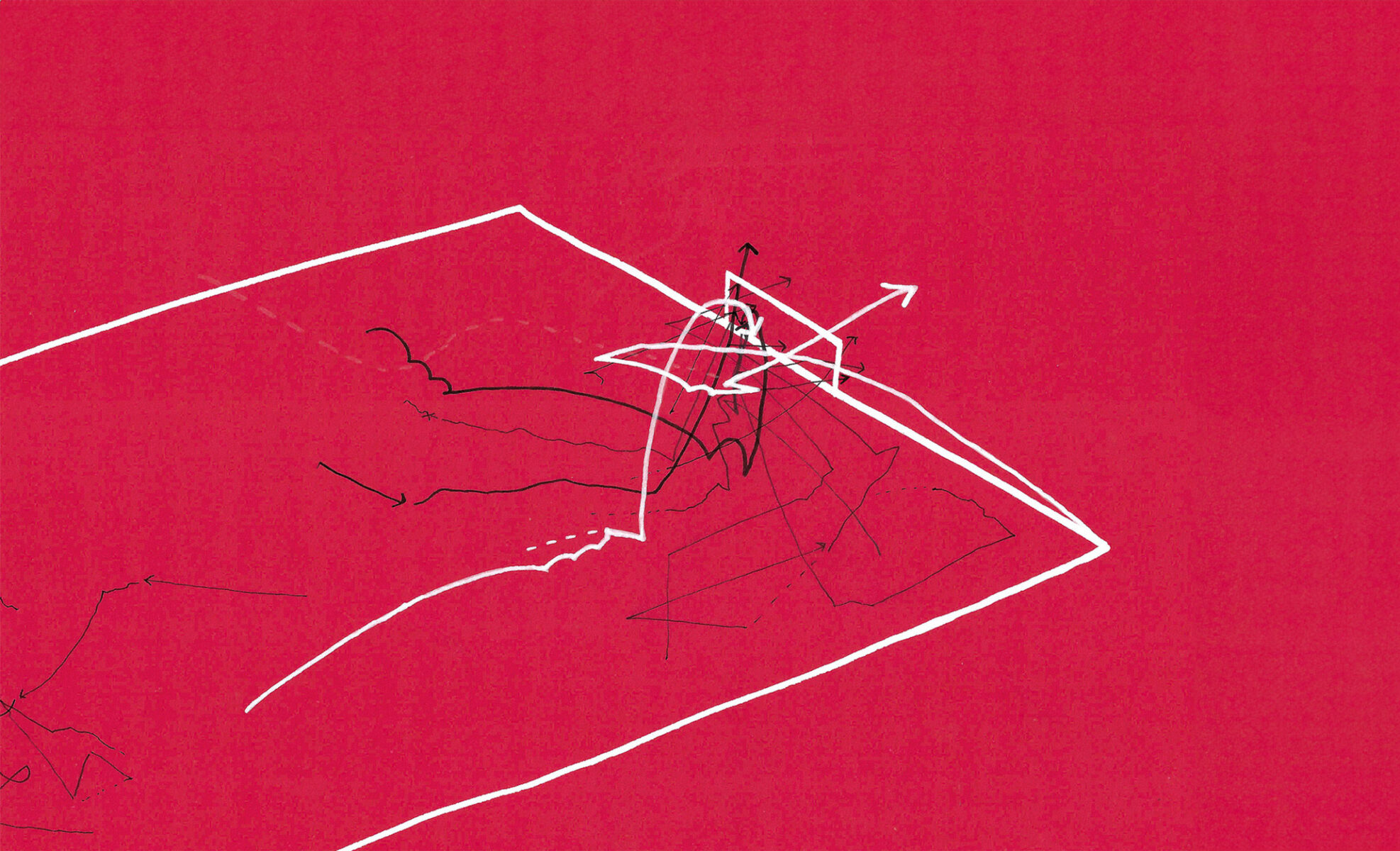
Rosanna Frith-Salem
Discover how queer artist and football coach Rosanna Frith-Salem is transforming the pitch into a canvas and creating inclusive spaces for marginalised players in London.
By Cathy O’Sullivan
How is the unlikely combination of football and art carving out queer spaces in London? I spoke to an up-and-coming queer artist whose love of the beautiful game is enabling young players to discover a space for themselves in the world of football. Rosanna Frith-Salem is an artist, player and coach based in East London. They describe their artworks as recreating the passion and movement of football through line. We met on a sunny bench in London Fields to talk about what making art as a footballer means to them.
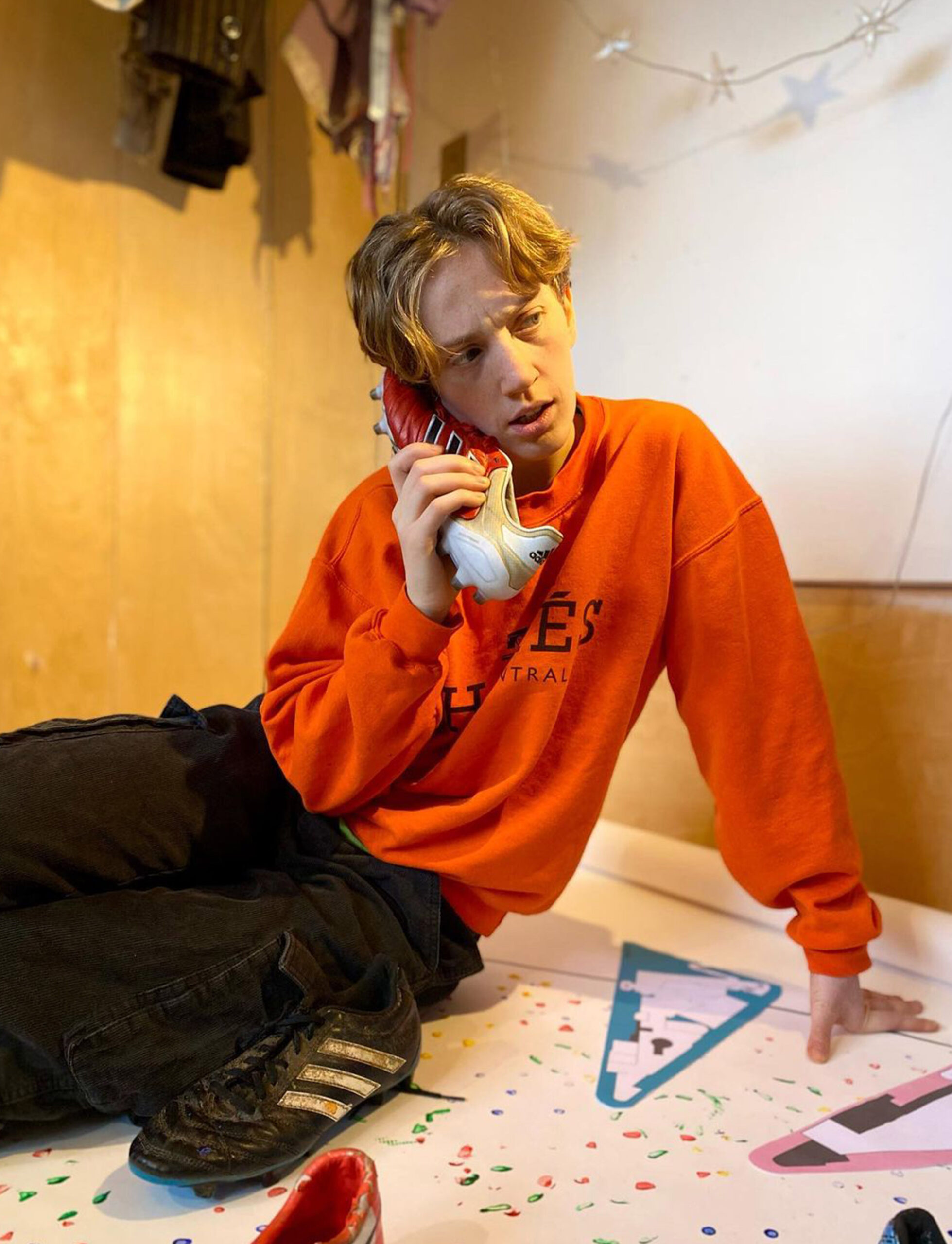
The child of an architect and a dancer, Rosanna has always had an intuitive understanding of space. They draw inspiration from artists such as Kandinsky and Julie Mehretu in the way they use shape and line to fill space. Growing up, Rosanna says that all they ever wanted was to ‘play football and draw’. The opportunity to combine these two passions finally arose at Loughborough University, with a high-performance football team and an excellent art programme.
Rosanna’s practice focuses on movement and motion through space. They see this as expressed through line. They use these lines to represent the movement of players and of the ball, sharpening or softening them to express different elements of the game. Rosanna’s work is also occasionally accompanied by text which is sometimes so small that it is difficult to distinguish from the other lines included in a piece. These snippets of text can be used to highlight different goals or techniques, but sometimes Rosanna uses them to recall inside jokes only understood by their teammates.
They draw inspiration from their experiences playing in or coaching football matches. Often this is from memory or from listening back to match audio. They visualise the techniques used and recreate them in line form. Rosanna often experiments with watching a football game whether in person or on TV and drawing this without taking their eyes off the game. Depicting the physical space taken up by a football game is central to their work but in doing this, they hope to spark conversations about the space that needs to be created societally for marginalised football players.
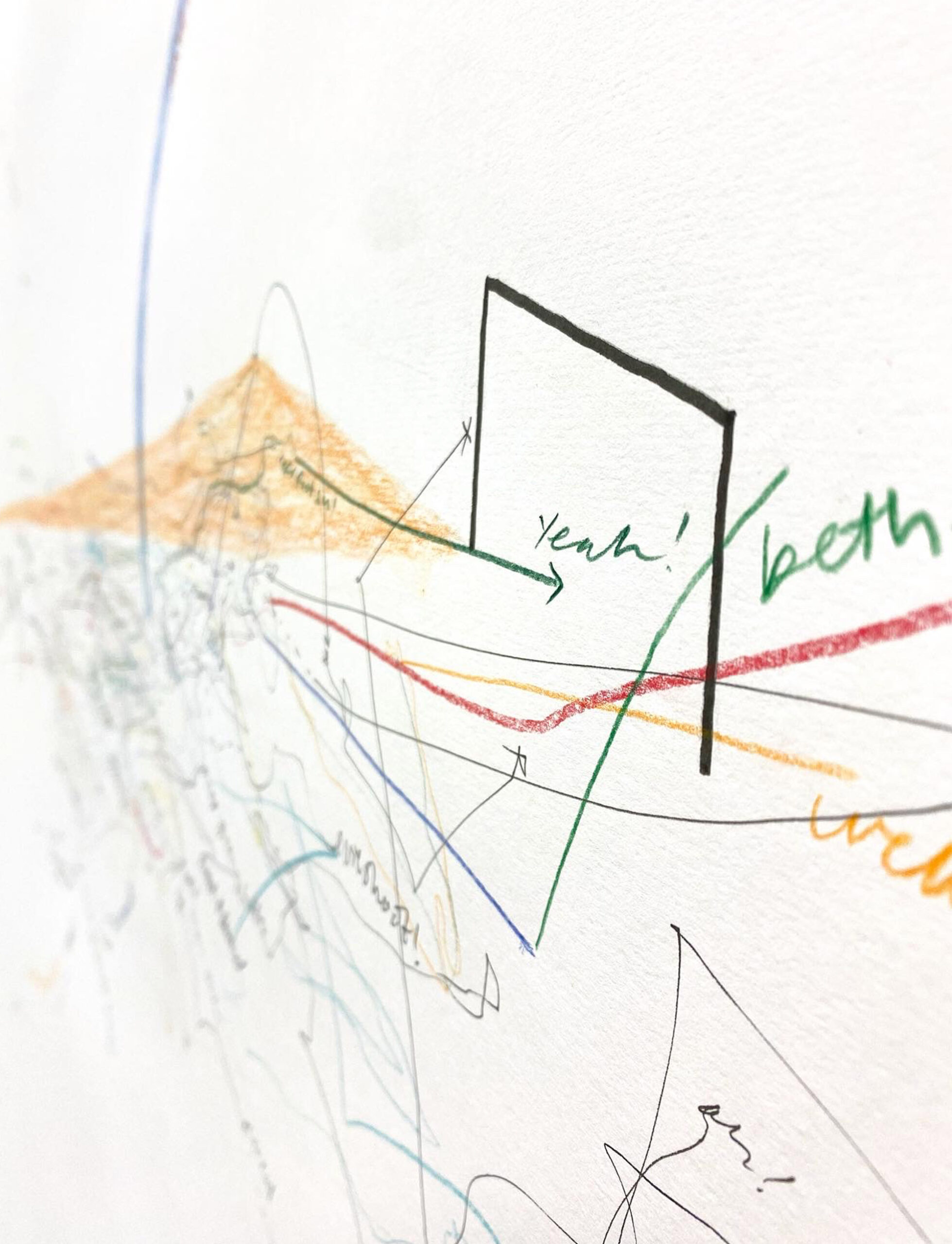
Rosanna now coaches for Goal Diggers FC. A London based womxn and non-binary football team with up to 180 members and a waiting list of four months long. It may be common knowledge to some that there is a thriving queer football team culture in London, scoring goals and socialising raucously under our very noses. Rosanna revels in the opportunity that football teams like this present for them to take up space as a queer person. Rosanna tells me how joining Goal Diggers allowed them to realise their identity upon moving back to London. They describe how this space has allowed them to develop their identity to become, in the words of an old friend, “the same, but even more like yourself”. Grassroots football teams are increasingly carving out space where queer people can express themselves fully in the world of football.
Rosanna also coaches under 13s and 14s football teams and speaks of their pride in being able to help young people develop their football skills but also to come out of their shells and develop lasting friendships with teammates. Through their coaching, Rosanna is creating a space where young people can comfortably ask questions about identity.
Recently, Rosanna has focused more on incorporating community workshops as part of their practice. Through their workshops, Rosanna creates spaces where people can think about what football and representation means to them. They say that they want to “show people that football and art can be one thing”. Rosanna cites players like Lotte Wubbon-Moy, who grew up in Stoke Newington and now plays for Arsenal, as an inspiration for them demonstrating the importance of role models within the sport. They also discuss how the Arsenal women’s team’s devotion to community outreach inspires them to host workshops and in turn give back to the community. On every level, football seems to be able to create space for people to express themselves in positive ways. Having benefited from this themselves, Rosanna is committed to passing on the favour and continuing to expand such spaces.
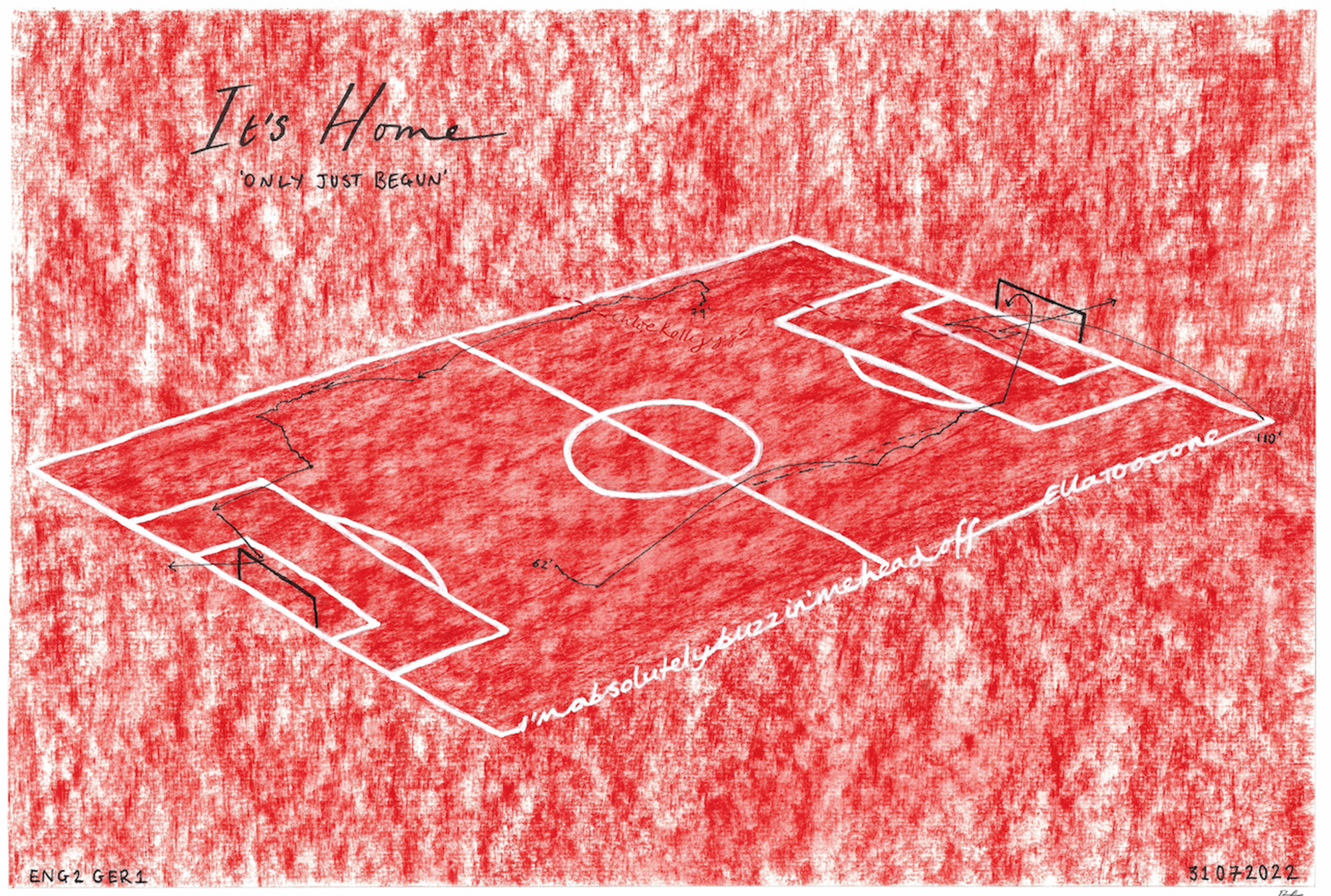
Transformed
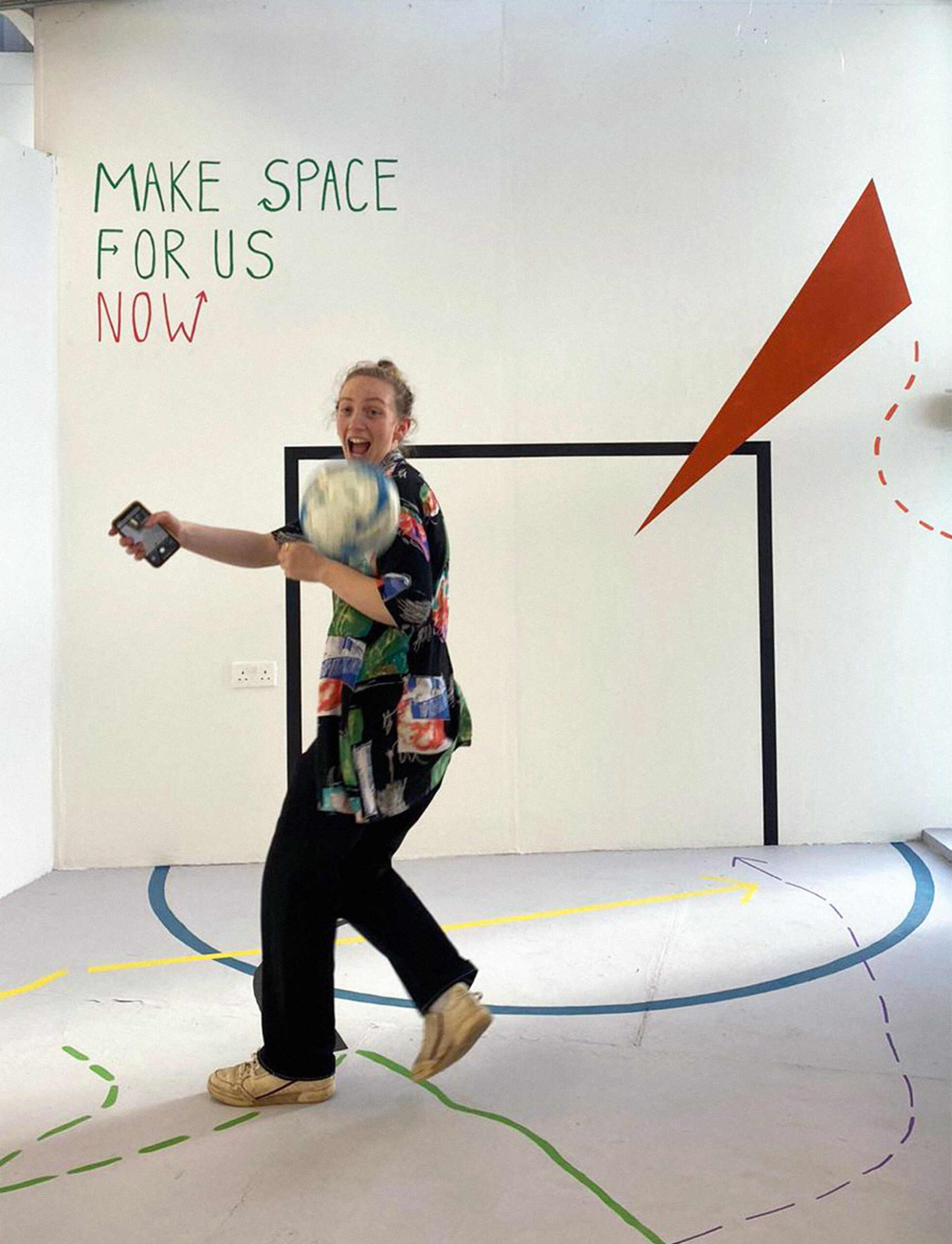
In 2022, Rosanna created their exhibition Make Space for Us. Rosanna invited visitors to the exhibition to interact with the space and to draw their favourite goals. In a second iteration of the exhibition, the space was transformed as Rosanna’s line work filled the floors and walls. However, Rosanna wonders if their 2022 exhibition, Make Space for Us, is still pertinent. It was conceived before the Lionesses’ success at the 2022 Euros and the conversation about women’s football was brought into the mainstream media.
I left our conversation feeling positive for the future of women in football but couldn’t help feeling that Rosanna had been talking about a grassroots movement that existed amongst young people in socially diverse cities. According to the 2022-23 Sport England Active Lives Children and Young People Survey, the Lionesses were able to encourage an increase of 1.5% more girl to play football in 2023 but there are still 22% fewer girls than boys playing team sport.
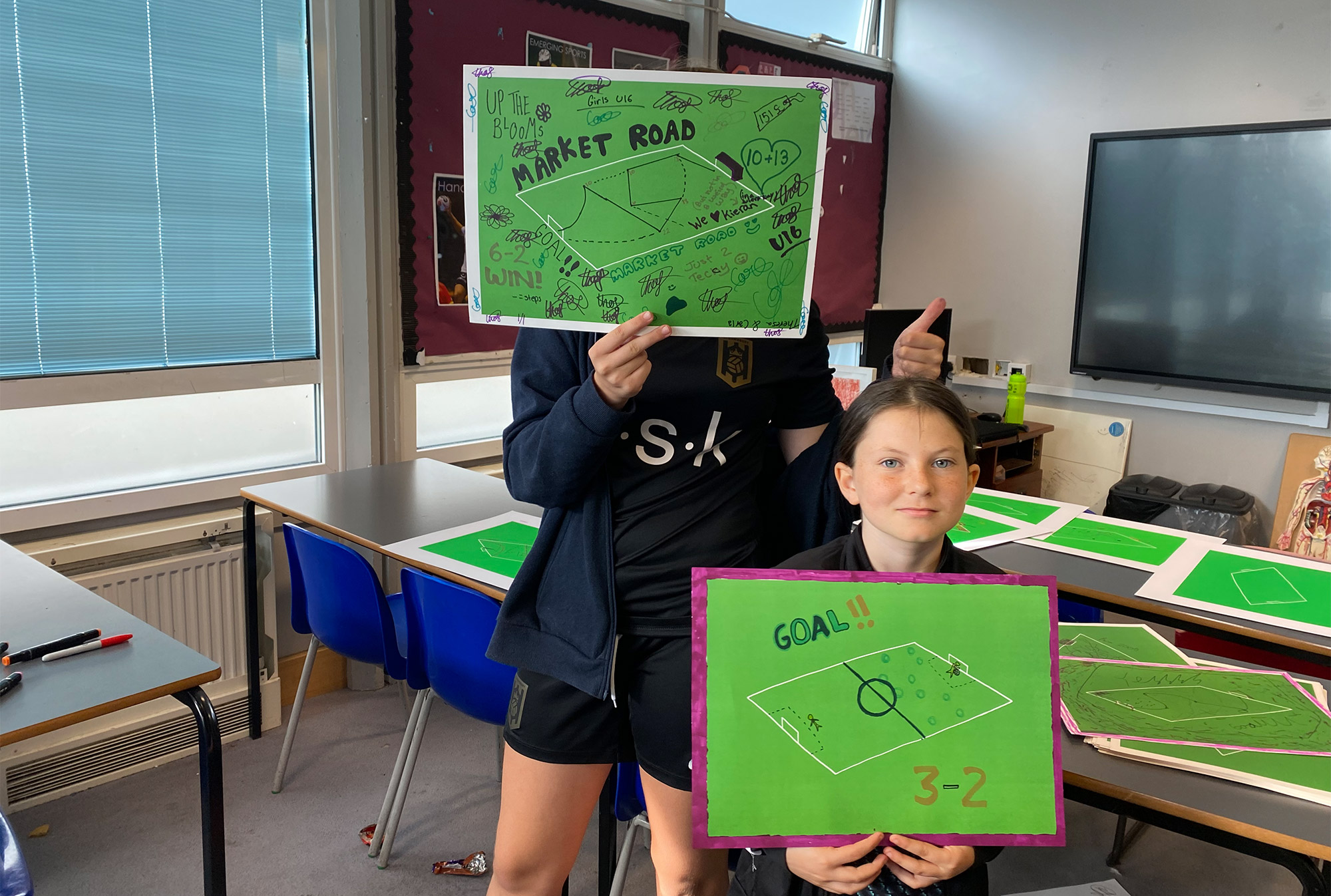
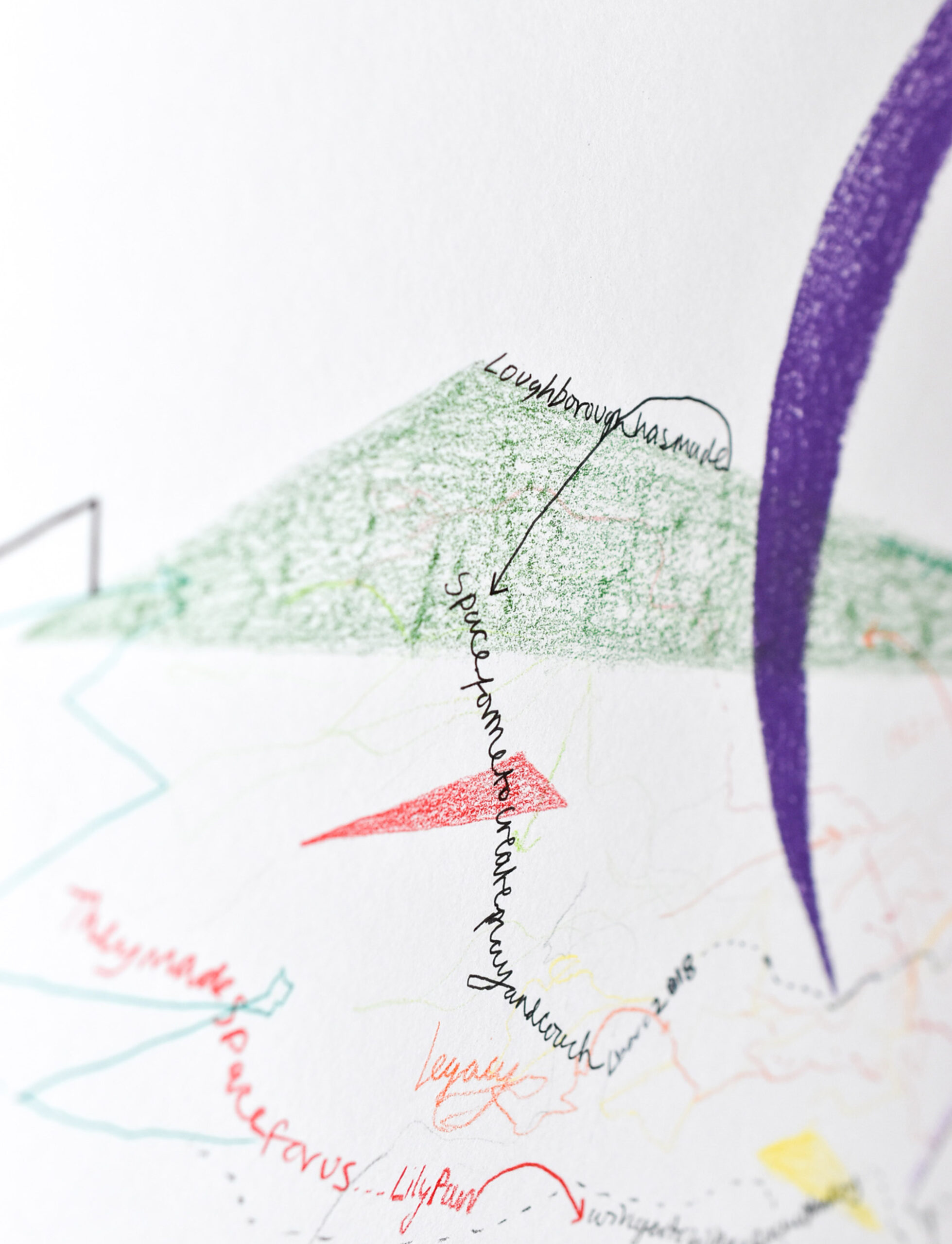
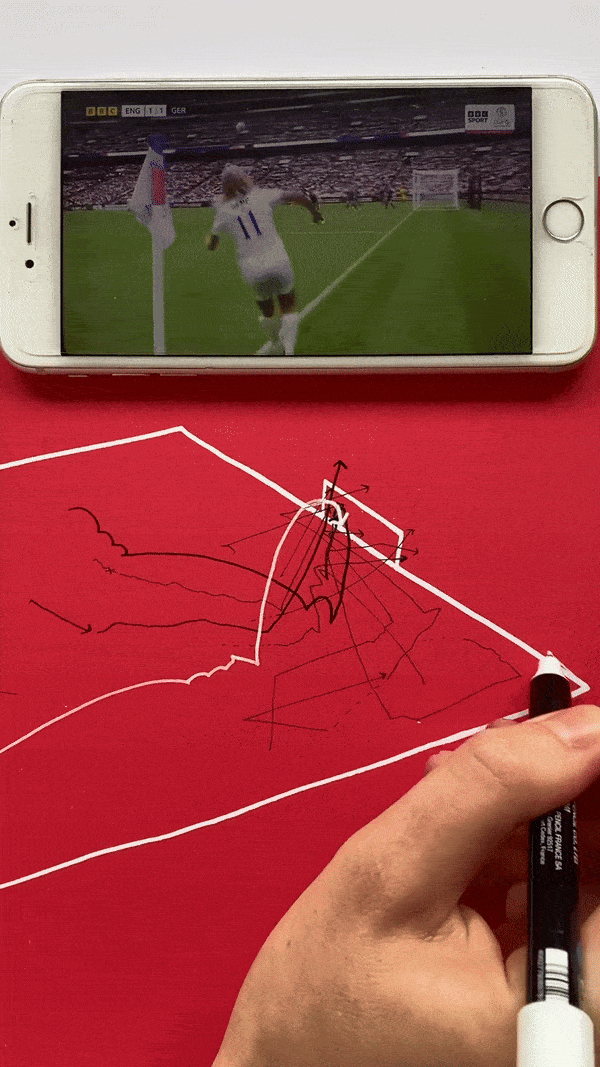
Rosanna questions whether new voices need to be brought to the conversation to promote greater understanding of intersectionality in the sport. They think it’s important that “more players celebrate the game but are also open about issues within it”. Rosanna thinks that there is a need for greater honesty and candour in conversations about women’s football to truly create space for everyone in the game. Women’s football is not immune to the issues facing that of the men’s sport. There is very little mainstream conversation about racial inequality in women’s football team and what can be done to combat this.
When we are making space for women and queer people in football, we must remember that this means all women and queer people. The Arsenal W.F.C has acknowledged the lack of diversity in their team, but one has to wonder why, in 2024, this issue could occur in the first place. The 2022-23 Sport England Active Lives Children and Young People Survey also reveals that “Notably, Black British children have the most positive attitudes towards sports and exercise, yet Black British girls are substantially less active than Black British boys. Black British girls are also 11% less active than White British girls”. It is essential to the progression of the sport that this imbalance is addressed.
progression
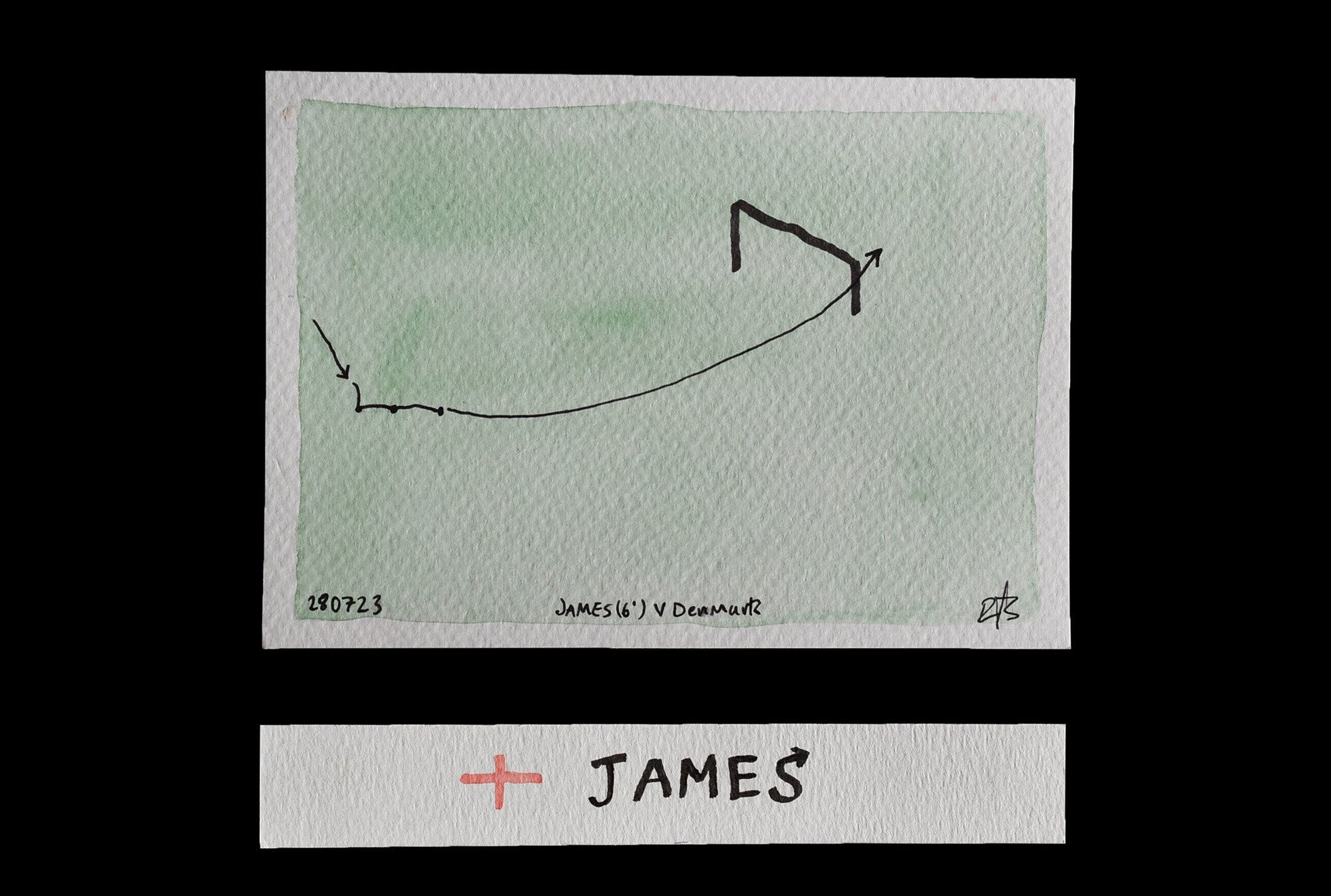
How can the attitude of teams like Goal Diggers FC reach beyond this relatively local bubble? How can we encourage young people from all backgrounds to become involved with movements like this? It is important that when we are creating space, we are creating spaces for everyone.
As someone who spent the majority of her PE classes hiding in the school toilets, I cannot claim to know the answer to engaging young people in sport. However, I know that looking at football through the lens of Rosanna’s art has helped in my realisation of how important it is in creating communities and helping people realise their identity. Rosanna is able to visualise the power of football to create space for marginalised people through their art. They physically create this space again and again through their workshops and support of others as a player and coach. Perhaps, through the work of more artists like Rosanna, art can provide an entry point to the power of football for young women and non-binary people who may not otherwise see it as a space for them.
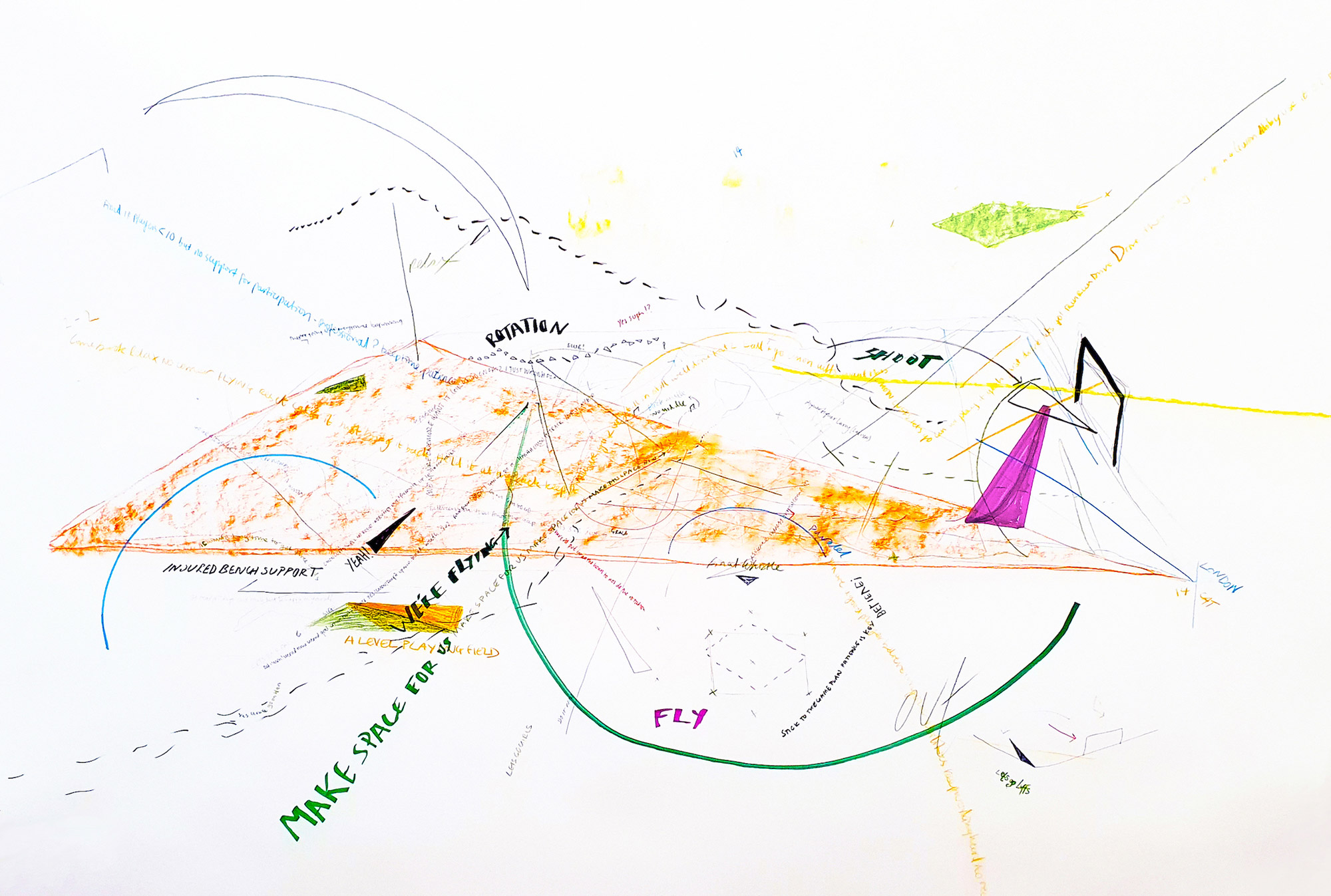
Keep up-to-date with Rosanna and their work on Instagram here: @rosannafs_art
Writer Cathy O’Sullivan comes from a background in philosophy, having completed her degree with the University of Edinburgh she then completed a Master’s degree in Curating Art and Public Programmes with Whitechapel Gallery. She currently works as a Gallery Assistant at Frith Street Gallery. She is passionate about promoting the work of young and underrepresented artists. This passion led her to pursue writing in order to amplify new voices in the art world.

